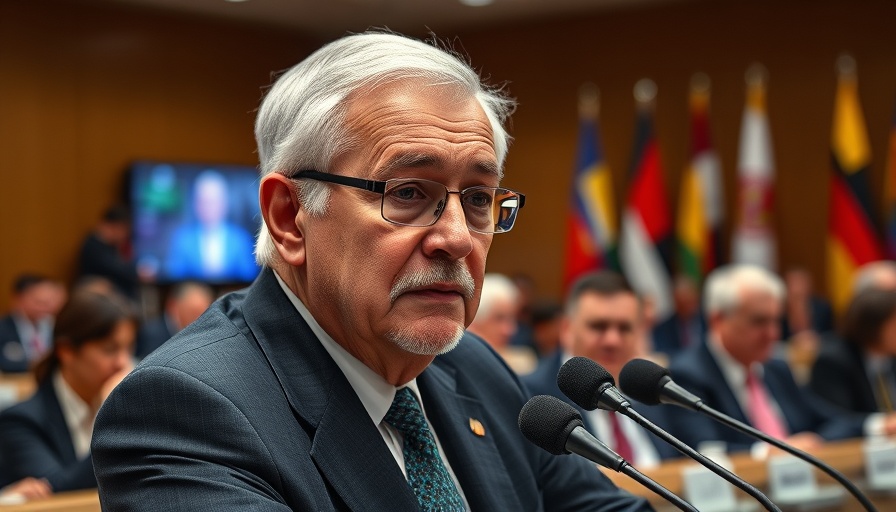
Marco Rubio vs. Wang Yi: A Battle for Influence in Asia
In a critical week for U.S.-Asia relations, Secretary of State Marco Rubio is positioning himself as a bulwark against Chinese influence in Southeast Asia. The political landscape has become increasingly complex as Rubio seeks to deepen U.S. ties with regional allies while China’s top diplomat, Wang Yi, aggressively counters Washington's moves. At the forefront of this diplomatic tug-of-war are the trade tensions and tariff threats initiated by President Trump, which threaten to undermine U.S. partnerships in the region.
The Stakes of U.S.-China Relations
The contest in Kuala Lumpur exemplifies the larger struggle between the U.S. and China to assert dominance in global trade and political allegiances. Rubio's attempts to solidify alliances with Japan and South Korea have been overshadowed by the backdrop of new tariff threats from Washington. These tariffs are not only directed at China, which could disrupt supply chains that are crucial to regional economies but also target treaty allies like Japan and South Korea. This raises critical questions about U.S. commitment to its allies amid increasing pressures from Beijing.
Tariff Threats: A Blunt Tool?
President Trump's recent tariff threats against 14 countries, including Malaysia and other allies, have sparked frustration among diplomats. Some of these nations are now questioning the merit of aligning with the U.S. when they may find themselves on the receiving end of punitive economic measures. This perception of unpredictability could have long-lasting effects on how countries view U.S. leadership in the region, potentially swaying them towards a closer partnership with China, which is promoting itself as a stable alternative.
The Dynamics of Diplomacy in Southeast Asia
Despite Rubio's strong advocacy for U.S. alliances, the realities of the geopolitical landscape make his job challenging. During his meetings with Asian diplomats, including the foreign ministers of Japan and Korea, he faces the task of convincing them of the value of aligning with U.S. policies. However, China’s concerted efforts to present itself as a reliable partner complicate this task. Wang Yi's presence at the same conference enhances perceptions that China is ready and willing to fill any gaps left by perceived U.S. instability.
Regional Reactions and Future Implications
The sentiments among Southeast Asian leaders are mixed, with some expressing concern over U.S. reliability following the tariff threats. If the U.S. fails to act consistently, it may see regional partners drift away, undermining decades of diplomatic efforts. Understanding these tensions is crucial for the Biden administration as it formulates its foreign policy toward Asia, particularly in relation to trade.
Looking Ahead: The Future of U.S.-China Relations
As Rubio and Wang prepare to meet on the sidelines of the conference, the world watches closely. This meeting isn’t just about tariffs; it’s indicative of the broader struggle for influence in Asia—a region that will play a pivotal role in shaping the global order. The ramifications of their negotiations could set the tone for U.S.-China relations for years to come, affecting everything from trade agreements to security collaborations against shared threats.
What This Means for You
Understanding the evolving dynamics between the U.S. and China is imperative for grasping the challenges faced by the global community. As individuals engaged with current events, remaining informed about these geopolitical shifts can highlight how international policy changes may impact local economies and political sentiments right here in the United States.
Political news in America is changing rapidly, and understanding these developments is crucial. Stay updated on the latest national news headlines and beyond.
 Add Element
Add Element  Add Row
Add Row 



 Add Row
Add Row  Add
Add 


Write A Comment